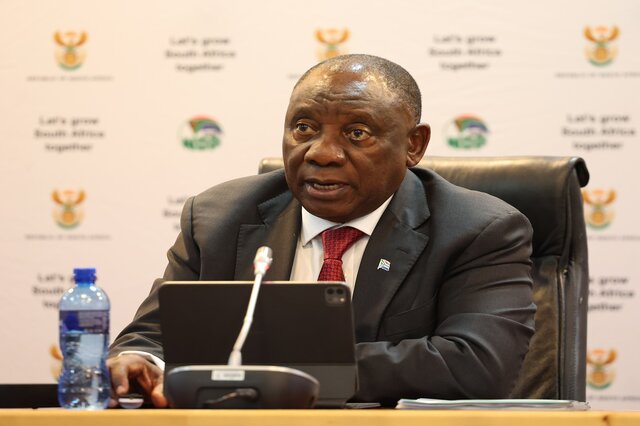Johannesburg — South African President Cyril Ramaphosa on Friday signed a disputed education law on languages in schools, after reaching an agreement with his initially opposed coalition partner.
The dispute over the Basic Education Laws Amendment (BELA) earlier this year was the first major test of the government of national unity, forged after May elections in which the African National Congress (ANC) lost its majority in its worst showing since the first all-race elections of 1994.
Objections from the second-largest party in the government, the Democratic Alliance (DA), and a handful of smaller parties originally focused on two clauses that will give the government more power to determine the language and admission policies of schools.
Critics say this will undermine mother-tongue education, with the Afrikaans community in particular fearing it could penalise schools that teach in its minority language.
My Fellow South Africans,
On the 13th of September this year, I signed into law the Basic Education Laws Amendment Act.
This Act is vital to the transformation of the education system in our country.
The Act is an important part of ongoing efforts to build an education system… pic.twitter.com/zop8G8blyq
— Cyril Ramaphosa 🇿🇦 (@CyrilRamaphosa) December 20, 2024
DA leader John Steenhuisen, who in September announced his party’s lawyers were building a case against the bill, noted that only about five percent of South Africa’s schools teach in Afrikaans.
“We do not believe the president should sign (the) BELA Bill into law,” Steenhuisen said at the time.
“We will have to consider all of our options on the way forward.”
But Ramaphosa previously said he was signing the bill to “give a clear message to the people of South Africa that we are proceeding with the transformation of our education system”.
“The DA and the other parties agreed to the full implementation, but it was done on the condition that the Minister of Basic Education, has got the right to write and implement the norms, regulations, and standards,” DA spokesperson Willie Aucamp told the broadcaster Newzroom Afrika.
DA national spokesperson Willem Aucamp has described President Cyril Ramaphosa’s statement on the full implementation of the BELA Act as a “win-win situation”, and a positive outcome for all parties involved.
Watch: https://t.co/QkA4YLDsu3#Newzroom405 pic.twitter.com/PBUOmF6497
— Newzroom Afrika (@Newzroom405) December 20, 2024
Other amendments include tightening regulations for home-schooling; penalties to reinforce a ban on corporal punishment; and possible jail terms for parents who do not send their children to school.
The bill will also make compulsory the first level of schooling, which is for children aged four to five.
South Africa’s white Afrikaner minority – descendants of 17th-century Dutch settlers – is a core constituency for the DA party. The group fear that their Afrikaans language, which derived from the variety of Dutch spoken during the period, might go extinct.
The DA, which secured 22 percent of this year’s vote, often criticises the leading ANC party which dominated the ballot with 40 percent.
The political rivals also differ on foreign policy and particularly Russia, which Ramaphosa at a BRICS summit in October described as a “valuable friend and ally”.
The reappointment in the government of former justice minister and ANC member Thembisile Simelane, whose reputation was marred by a financial scandal, also exacerbated tensions.
Simelane has since been downgraded to the less central post of human settlements minister.
Follow African Insider on Facebook, Twitter and Instagram
Source: AFP
Picture: X/@PresidencyZA
For more African news, visit Africaninsider.com


